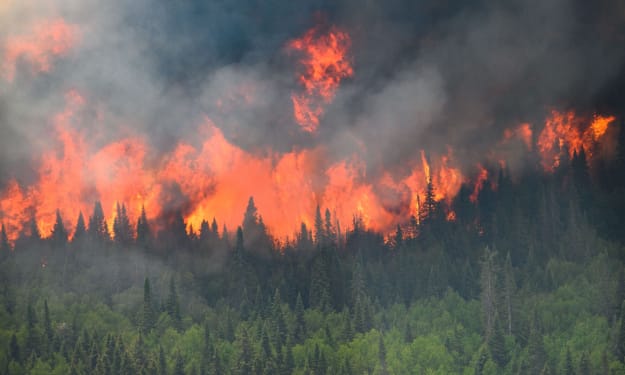Wildlife
#Life in the wild #Survival of the fittest #Wonders of the wilderness

The biodiversity of our world is a masterpiece of evolution, a colorful tapestry embroidered by millions of species, each of which contributes in a different way to the delicate balance of its ecosystems. All types of wildlife benefit the health and welfare of our planet and its inhabitants. This essay will discuss the vital significance of wildlife conservation and the immediate necessity to save these priceless resources. The Significance of Wildlife
Ecosystem Services:
Wildlife is not just a source of wonder and inspiration; it is also a cornerstone of our planet's ecosystems. These ecosystems provide essential services, such as pollination, pest control, and nutrient cycling. For instance, bees and butterflies play a vital role in pollinating plants, ensuring the production of fruits and vegetables that make up a significant portion of our diets.
Genetic Diversity:
Wildlife holds a wealth of genetic diversity. This diversity is essential for the adaptation and resilience of species to environmental changes, including climate change. A broader genetic pool increases the chances of survival for a species when faced with new challenges.
Cultural and Aesthetic Value:
Wildlife has deep cultural significance, inspiring art, folklore, and spiritual beliefs across the globe. Many communities have strong connections to their local wildlife, which plays a crucial role in their cultural identity. Additionally, wildlife enriches our lives through the beauty and wonder it brings, fostering a sense of awe and appreciation for the natural world.
Economic Benefits:
Wildlife-based tourism is a significant source of income for many regions, creating jobs and contributing to local economies. Safaris, birdwatching tours, and wildlife photography are just a few examples of the economic opportunities wildlife conservation can offer.
The Threats to Wildlife
Despite their immense value, wildlife populations worldwide are facing unprecedented threats:
Habitat Loss:
The relentless expansion of human activities, such as urbanization, agriculture, and deforestation, has led to the destruction and fragmentation of natural habitats. This leaves many species with shrinking and isolated ranges, making them vulnerable to extinction.
Climate Change:
Rising temperatures, altered precipitation patterns, and extreme weather events driven by climate change disrupt ecosystems and challenge the ability of species to survive in their traditional habitats.
Poaching and Illegal Wildlife Trade:
Many species are hunted or captured for their body parts, skins, or pets. The illegal wildlife trade is a multi-billion-dollar industry that poses a significant threat to numerous endangered species.
Pollution:
Pollution, including habitat pollution and marine debris, negatively affects wildlife by contaminating their environments, leading to various health problems and reduced reproductive success.
The Importance of Conservation Efforts
Wildlife conservation efforts are crucial for safeguarding our planet's biodiversity and addressing the threats facing wildlife. These efforts include:
Protected Areas:
Establishing and maintaining protected areas like national parks and wildlife reserves help conserve critical habitats and provide safe spaces for wildlife to thrive.
Habitat Restoration:
Efforts to restore and rehabilitate degraded habitats are essential for giving wildlife a chance to recover and reestablish themselves.
Anti-Poaching Initiatives:
Stricter laws, international cooperation, and public awareness campaigns are necessary to combat poaching and the illegal wildlife trade.
Climate Action:
Mitigating climate change through reduced greenhouse gas emissions and adaptation strategies is vital to ensure that wildlife can adapt to changing conditions.
Education and Advocacy:
Educating the public and advocating for wildlife conservation policies can lead to greater awareness and support for protecting our natural world.
Conclusion
Wildlife conservation is not merely a moral obligation; it is an essential investment in our planet's future. By protecting and preserving wildlife, we safeguard the very ecosystems that sustain us and countless other species. As stewards of the Earth, it is our responsibility to act now to ensure that the rich tapestry of life on this planet continues to flourish for generations to come.





Comments (1)
Keep writing! Great story!